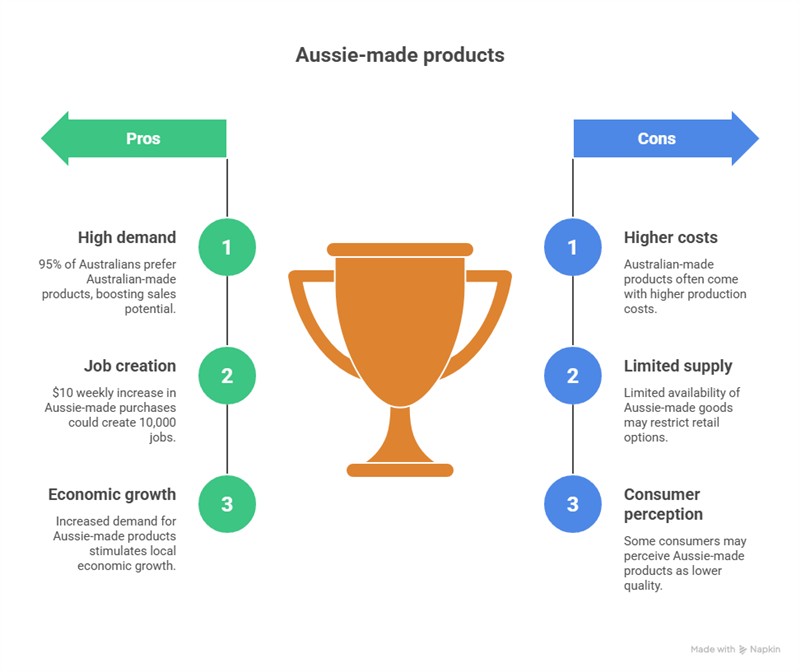Aussie-Made

Are you an SMB retailer in Australia wondering if you should go all in on Aussie-made products? The headlines are tempting; a recent Roy Morgan report claims that 95% of Australians are more likely to buy Australian-made products. Plus it would be great if more people would buy Aussie-made, research shows if each household spent an extra $10 weekly on Australian-made products, it could create almost 10,000 new jobs.
Let's explore the true challenges faced by retail business owners and the reality of Aussie-made versus imported goods.
The Hype vs. Retail Reality
On the surface, this appears to be a golden opportunity to align with customer sentiment and boost sales.
But whilst supporting local industry is a powerful ideal, small business owners must ground their strategy in reality. Before overhauling your inventory, it's crucial to look beyond the hype and consider the real-world factors that truly drive consumer behaviour.
Beyond the Hype
The Gap Between Saying and Doing
Most shoppers like to think of themselves as supporters of Aussie-made, but what people say and what they actually do at the checkout can be very different. Surveys capture intentions and aspirations, rather than actual behaviour. When faced with a choice in your shop, factors such as price, convenience, and habit often win over ideals.
Price Still Rules, Especially Today
Although Roy Morgan found that many Australians would pay a little more for Australian-made products, the increase was not substantial. Around half said they would only pay up to 5% more, and just 20% would pay up to 10% more. With rising costs and tighter budgets, today's price usually comes first. If a comparable imported product is significantly cheaper, most shoppers will reach for it even if they wish they could do otherwise.
The Scarcity of Aussie-Made Goods
Here's an often-overlooked truth: in many categories, there isn't an Australian-made option available. Decades of relocating our manufacturing overseas have resulted in the majority of everyday retail goods being imported. You can't sell what doesn't exist. We no longer have the local manufacturing capacity that we had 40 years ago; it has long since disappeared.
Confusing Labels
Whilst we have country-of-origin labelling for most foods, the rules for non-food items are much looser. Today, "Made in Australia" may mean "packed or assembled here."
'Australian-Made' Isn't a Guarantee of Quality
The "Australian-Made" badge speaks to a product's origin, not its quality. Your reputation depends on selling quality and value. The label "Made in Australia" doesn't make their product better.
Things Are Rarely Equal
If you're comparing two identical products at the same price, the Australian-made option is likely to be the better choice. However, in real-world retail, products have costs, quality and a brand. Origin is just one factor alongside your staff's recommendations, product availability, and customer preferences.
Conclusion
The desire to support Australian businesses is genuine, and it deserves respect. But buying local is an aspiration.
It's easy to get caught up in broad trends. However, your best insights come from your point-of-sale system, not surveys. Your POS System shows what your customers really buy (not just what they say they want). Use the information you have for a deeper dive here. Your sales data is real and actionable. Let that guide your next steps.



